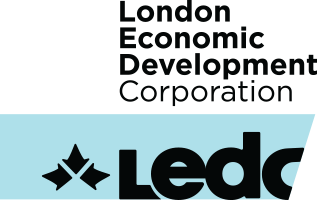LONDON, Ontario - Dr. Keith St. Lawrence, researcher at Lawson Health Research Institute (Lawson) and Assistant Professor, Department of Imaging Sciences, Diagnostic Radiology and Nuclear Medicine, Department of Medical Biophysics at The University of Western Ontario, is the recipient of a $215,912 grant from the Canadian Institutes of Health Research (CIHR) to study how an optical imaging device can effectively monitor brain injury in critically ill newborns. His research is one of five projects at Lawson to receive new CIHR funding, totaling more than $2.4 million.
A major cause of brain injury in term newborns is asphyxiation during labour and delivery, which causes a lack of oxygen (hypoxia) and blood flow (ischemia) to the brain. Clinically, this is referred to as hypoxia-ischemia and the results can be devastating. Between 15-25% of asphyxiated newborns die during the neonatal period and, of those who survive, up to 25% are left with severe, life-long handicaps, including cerebral palsy.
"With babies suspected of hypoxia-ischemia, brain injury develops over a period of a few days and; therefore, there is a critical, yet brief, window of time where we can detect early signs of injury and provide prompt treatment to prevent further brain damage," says Dr. St. Lawrence.
To monitor these sick newborns for brain injury, Dr. St. Lawrence and his colleague, Dr Ting-Yim Lee have developed an optical imaging device that measures brain blood flow and energy metabolism in infants.
"The optical device is ideally suited for critically ill newborns because it is a portable, inexpensive unit that allows us to make bedside assessments during the vital first few hours of life," says Dr. St. Lawrence.
"But there is a problem with our current technique," continues Dr. St. Lawrence, "an injection of contrast agent is required for every measurement, which limits its clinical feasibility. The practicalities of intensive care demand monitoring devices that are real-time and hands-free. One of the main goals of this CIHR project is to adapt our methods to provide continuous measurements of brain blood flow and energy metabolism."
By continuously monitoring the brain function right at the bedside, the optical device will allow doctors to accelerate treatment decisions, which Dr. St. Lawrence hopes will ultimately help reduce the severity of brain injury in these infants.
The CIHR research grant will help to start clinical studies involving babies in the neonatal intensive care unit at St. Joseph's Hospital in London, ON. The study will be done in collaboration with Dr. David Lee, a Neonatologist at St. Joseph's Health Care, London and co-investigator on the study.
In addition to receiving five operating grants, Lawson researchers have also received CIHR grants in Maternal & Child Health, Randomized Controlled Trails, and Team Grant: Physical Activity, Mobility & Health.
"The money received for the Lawson research projects confirm Lawson's excellence in a number of research areas," says Dr. David Hill, Scientific Director at Lawson. "We have world-class research right here in London where science leads the charge for great discoveries in health research."
The grants awarded are part of a total investment in operating grants from CIHR of $9.55 million involving Lawson and The University of Western Ontario.
As the research institute of London Health Sciences Centre and St. Joseph's Health Care, London, and working in partnership with The University of Western Ontario, Lawson is committed to furthering scientific knowledge to advance health care around the world.
About Lawson Health Research Institute
As the research institute of London Health Sciences Centre and St. Joseph's Health Care, London, and working in partnership with The University of Western Ontario, Lawson Health Research Institute is committed to furthering scientific knowledge to advance health care around
the world.
For more information, please contact:
Julie Barr, Communications Consultant
Lawson Health Research Institute
519-646-6100 ext. 61098
[email protected]
www.lawsonresearch.com


